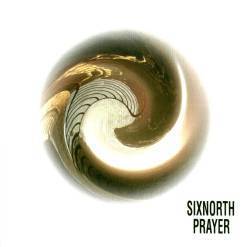Not much in the database. Obviously, a concept album based on the story of Hamlet.
On the other hand, lots of material on rym.
A review from apps with the history of the band, note that everyone gives this release about 3 out of 5 stars, which I think is accurate.
This band from Hessen was formed by ex-Broomstick members Michael Lippert (vocals, bass, guitar) and Claus Lange (drums) in May 1976 along with Reinhard Olschanski (guitar) and Gerd Schmelzer (keyboards), beginning with the writing of a Rock Opera, which they performed live in 1977 without gaining a recording contract.In the meantime another local group, King of Twilight, disbanded in 1976 because of military obligations of members Bernd Scholl (keyboards) and Reiner Muller (drums).When these were fullfilled, Scholl returned to the scene, performing for about a year with Ice, then joining Guildenstern, who were searching for new members, next to singer Gerd Holfelder and Michael Kuplien (guitar, violin).The band played numerous lives with the line-up, but the only saved recordings were released only in 2011 by Garden of Delights as ''Guildenstern''.Most of them were an unusual Symphonic Rock with heavy references to Electronic Music, as Scholl apparently became a leading figure for the band, performing endless synth layers and acoustic piano lines next to a solid rhythm section and a guitarist with a mellow style, which adds a slight psychedelic touch in the softer parts.Nice keyboard-based Prog with spacious overtones and some quite furious and cosmic bombastic sections.The psychedelic tone of the electric guitar links the sound to the other style of the Guildenstern's repertoire, the one close to Kraut Rock, respresented by minor tracks with acoustic guitars, raw electric themes, atmospheric keyboards and acid vocals.Guildenstern called it quits in 1980 with Scholl becoming a composer of Electronic Music and Lippert-Lange playing for the next four years with a group named Masque.
A lot depends on if you have a taste for this symphonic bombastic German style (I don't) with long drawn out keyboard chords, so similar to others before them or rather from the same time period, eg Neuschwanstein (although remember I was quite pleased with their Fine Art album here, I don't think this one in any way compares to them). I think there's quite a bit too many boring instrumentals with a couple of chords played on the digital strings that eventually go nowhere.
A vocals track caller After the Inquisition:

















































